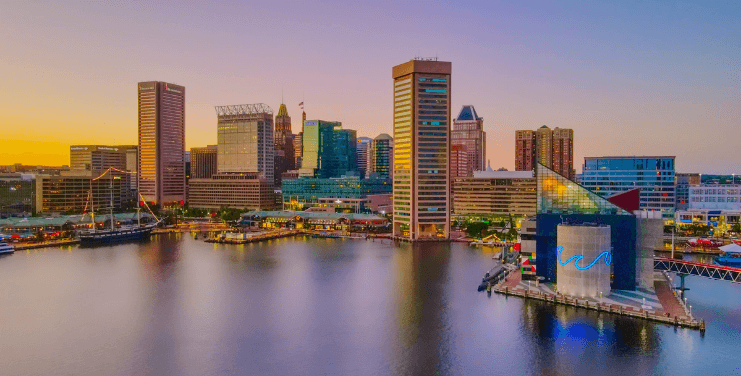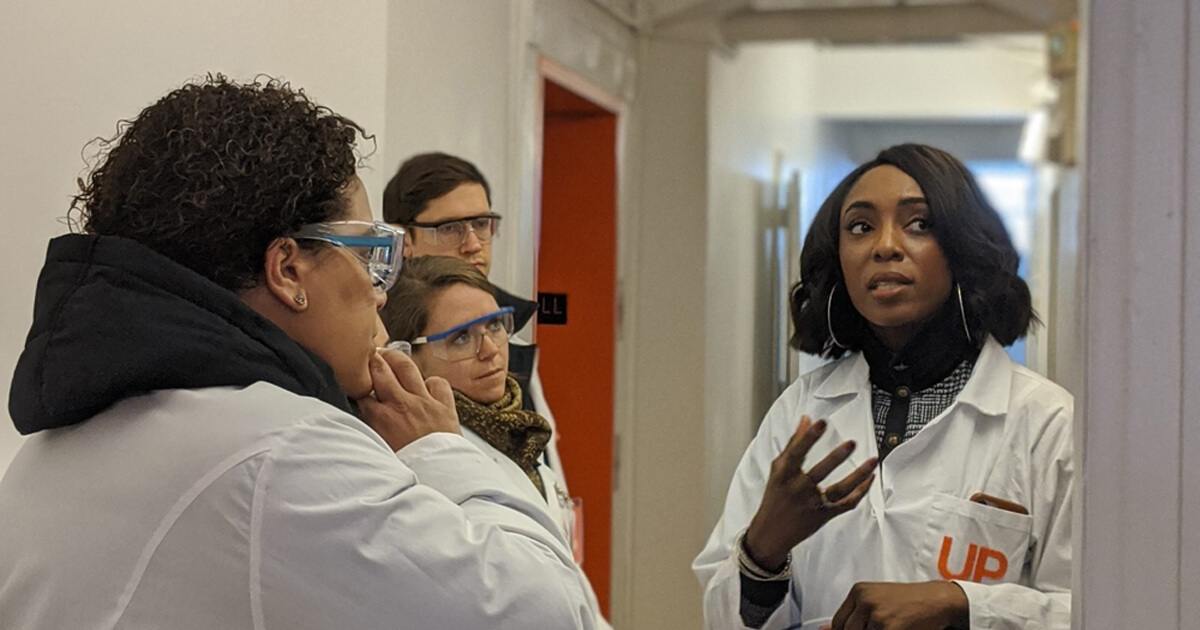As the tech industry continues to boom in upstate New York, Black founders who have contributed to this growth feel they are frequently left out of the growing opportunities that come to the area. Yasmin Mattox is no stranger to missing out on grants because of where she lives. Last year, the Rochester-based entrepreneur planned to apply for Facebook’s $100 million initiative to support small businesses in locations where the company operates. Living in New York state, Mattox thought the grant was open to residents like her. But when she scanned the list of eligible locations, she quickly realized her city was not on the list, making Mattox ineligible for a grant.
Oftentimes the most deserving, in terms of economic needs, are those who are not in New York City, but in fact, those who are in areas like Rochester where there is more economic depression, Mattox told The Plug. Yet, we can’t get the help because as soon as you go on the Airtable questionnaire, it’s like ‘Are you in New York City? No? Ok, you’re ineligible.’In 2019, Brookings Institute named Rochester, Buffalo, and Syracuse among 30 metro areas that could become America’s next innovation hubs. But as cities in upstate New York continue to develop their tech scenes, Black founders say they see both ongoing obstacles to success and tremendous growth opportunities.
Mattox first moved upstate to attend Alfred University’s astronomy program and observatory, dreaming of becoming an astronomer or astrophysicist. Instead, the Harlem native obtained a bachelors in political science in 2007, falling in love with her husband and staying in the area. Mattox believed she could be a big fish in a small pond in Rochester. I decided if I’m going to be broke as a recent college graduate, I would much rather be broke where there’s a nice environment, someone I know, the cost of living is better and there are a lot more opportunities than in New York City, she said.
In 2017, she founded Arkatecht, a company that offers digital advancement opportunities and tools for working parents. Two years later, she became a venture partner for WeFunder, helping the company identify local talent and businesses that would benefit from crowdfunding. Recently, Mattox worked with LaunchNY, a nonprofit venture development organization, crediting the organization’s customer discovery program with helping her narrow Arkatecht’s focus, allowing the business to focus on providing community, workplace advocacy, and professional development opportunities to direct care workers.
During her work with LaunchNY, Mattox met Derrick Parson, a Buffalo resident who founded Graspie, originally a training, engagement, and onboarding platform that caters to millennial workers. Graspie has raised over $200,000 in funding, creating employee training content for the city of Buffalo and several startups, including a few in the hospitality sector. Parson says the company has recently pivoted and is currently working on a new platform that will address the professional development market. Parson moved to Buffalo from Brooklyn more than 20 years ago to attend University at Buffalo] and, much like Mattox, stayed in the area because of the lower cost of living and potential business opportunities.
The scene was just emerging with a lot of startups, a lot of e-commerce businesses, everything entrepreneurial, Parson told The Plug. I figured it would be easier for me to stay here..But Parson said it wasn’t until about seven years ago that he began to really see and benefit from the resources within Buffalo’s tech and entrepreneurship scenes.
It was just emerging when I came on the scene. As a Black founder, I had to learn that a lot of these resources were already there and I just didn’t know about them, he said. Parson credits the launch of 43North, a $5 million startup pitch competition founded by New York State’s Buffalo Billion initiative, with helping him discover venture development organizations and other resources in the area.43North has 51 companies in its portfolio, with 31% of its founders are people of color and 23% are women, according to Colleen Heidinger, President of 43North. She credits people like Melissa Bradley, managing partner of 1863 Ventures in D.C. and Digital Undivided CEO Lauren Mailian with providing strong referrals for 43North. Alumni, which includes founders in life sciences, manufacturing, cleantech, and other sectors, are another strong referral source.
As a state-funded organization in New York State, we had some uncertainty all last year, Heidinger said. But despite these challenges, she added, the company is excited to continue to serve entrepreneurs in Buffalo this year. The big news is that we will be back, she said. Parson and Mattox said the local startup scenes throughout upstate New York still have some work to do when it comes to diversity and inclusion.
On the one hand, I would say Rochester has a wealth of opportunities, but that wealth of opportunities are primarily open to those who are already within certain circles, which is something that Derrick and I talk about often, Mattox said. Parson’s connections to founders and ecosystem leaders in D.C., Atlanta, North Carolina, and elsewhere propelled him as an entrepreneur in a way that wasn’t happening back home in Buffalo. He says connecting with Bradley and participating in Google for Startups Black Founders Exchange program in Durham has attracted more attention to Graspie.
They saw something in me that no one upstate saw. Once that happened, all of a sudden the doors in upstate New York started opening, he said. Parson agreed with Mattox that upstate New York founders are often overlooked for opportunities. You would think being an hour away from New York City you would have some of the dopest VCs looking at us. But that’s not the case.
Both founders said they now feel an obligation to Black entrepreneurs who have found success in upstate New York and help others find available resources and opportunities. Any ecosystem takes time to build, Parson said. As I connect with other Black founders who are trying to build up here, now is our time to also help build that ecosystem.








